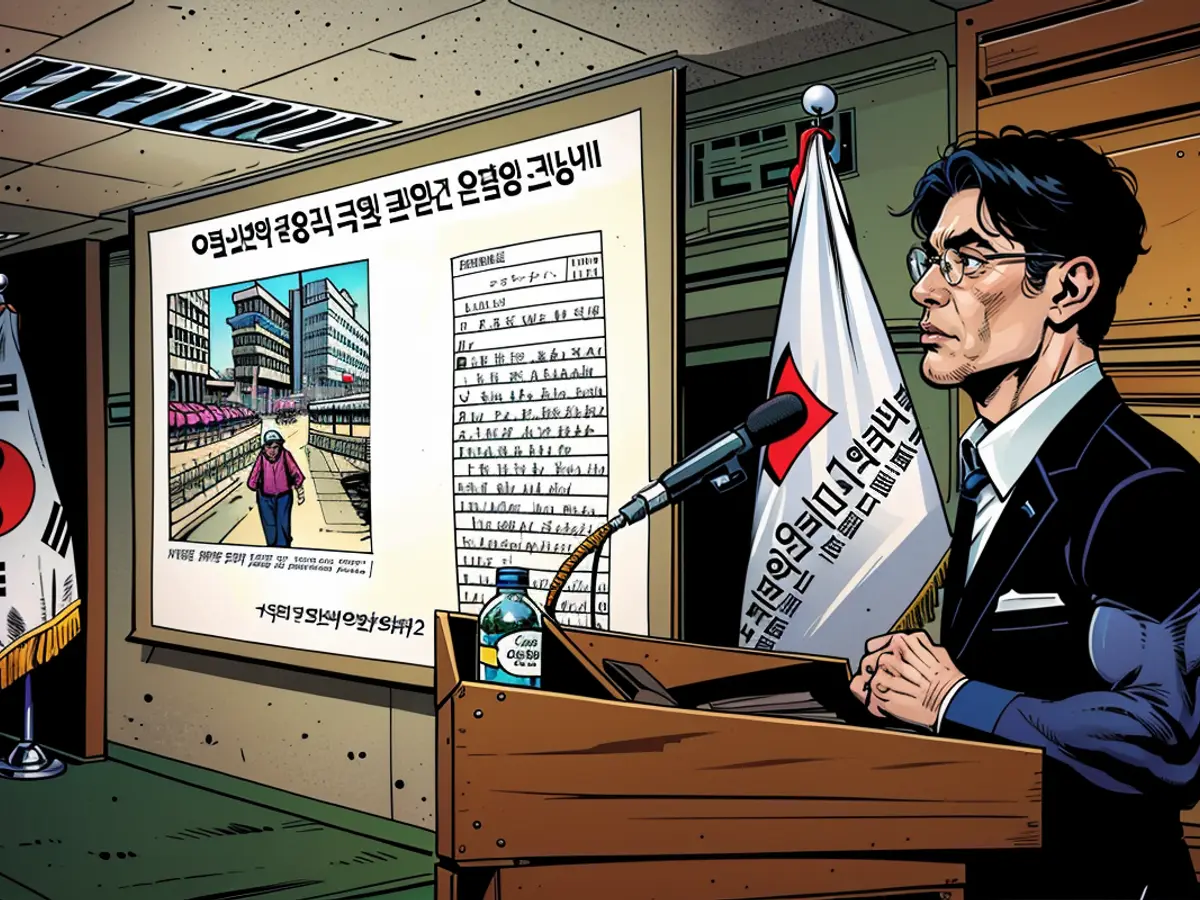Global leader in infant relinquishment, South Korea, is revealed to have pressured certain mothers into surrendering their newborns.
Numerous adults who were once adopted children, now dispersed globally as they seek their birth origins, have cropped up accusing adoption agencies of misconduct and wrongdoing, even going as far as forcibly separating them from their mothers.
Recently, a Korean government panel's report had backed these accusations and presented fresh evidence on the oppressive methods utilized to persuade mothers to surrender their kids.
Established in 2022, the Truth and Reconciliation Commission sought to probe these allegations. The investigation confirmed that more than a handful of infants, housed in government-subsidized establishments during the 1980s, were forcefully relocated to adoption agencies. This frequently occurred either on the day of birth or the next.
They investigated three facilities located in Daegu and Sejong cities, where in 1985 and 1986, a total of 20 children were transferred to adoption agencies. The majority of these children ended up being adopted by families in the United States, Australia, Norway, and Denmark.
"The circumstances strongly suggest the facilities compelled mothers to relinquish their parental rights," the commission told CNN in a statement, marking a noteworthy accomplishment for adoptees who have waited for decades to hold the government accountable.
The commission continues to investigate allegations involving falsified documents. An interim report is anticipated to be released later this year.
In pursuit of one's roots
Over 200,000 Korean children have been adopted abroad since the 1950s, following World War II and the Korean War, as per authorities. The majority of these children were adopted by families in the US and Europe.
Adoptions continue to occur, but the trend has been decreasing since the 2010s, after South Korea amended its adoption laws to address systemic issues and minimize the number of children adopted overseas.
For a generation of adoptees who have grown up in predominantly White, homogeneous environments, struggling to connect with their Korean heritage and feeling out of place prompted many to embark on a journey to find their biological families.
Some adoptees have mixed feelings about the commission's findings, experiencing both horror and hope that the investigation will shed light on what many have long suspected.
"It's truly alarming to learn how widespread these issues were, but I wouldn't say it's entirely unexpected," shared Susanné Seong-eun Bergsten, who was adopted from South Korea and raised in Sweden.
Bergsten's biological family located her when she was an adult, and while there was no evidence of falsified paperwork, she understands the challenges modern Korean adoptees face in advocacy.
"We adoptees are often told that these adoptions are for our own good and we should all be grateful for having escaped poverty," she remarked, adding, "the reality is far more complex."
"Our adoption papers lack essential information that could give us a broader context for our adoption, such as our cultural background, stigmatization, and individual struggles faced by our parents in the post-war era," she said.
Mark Zastrow, an American-raised Korean adoptee, remarked that the findings were an "important milestone."
"[It] validates what Korean adoptees have known for decades within our community: The narrative that Korean mothers chose to willingly surrender their children is, in most cases, a falsehood," he said.
While they both agreed it was a significant step forward, Bergsten urged the government to persist in taking responsibility and offering reparations to adoptees and their families.
"Adoption touches every aspect of Korean society and every economic class," claimed Zastrow. "There is still much about Korean adoption that remains untouched and unfamiliar."
In light of the investigations, several adoptees have called for a global inquiry into similar alleged practices in other parts of Asia. The world community should pay close attention to this issue, as it affects the rights and well-being of countless children and their families.
Despite the ongoing investigations, the demand for truth and reconciliation extends beyond South Korea, sparking discussions about adoption policies and practices in other Asian countries.







